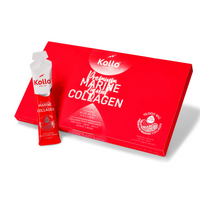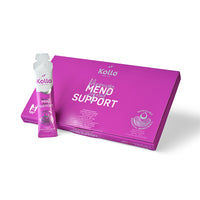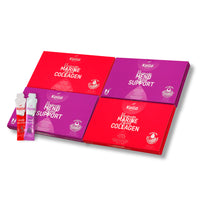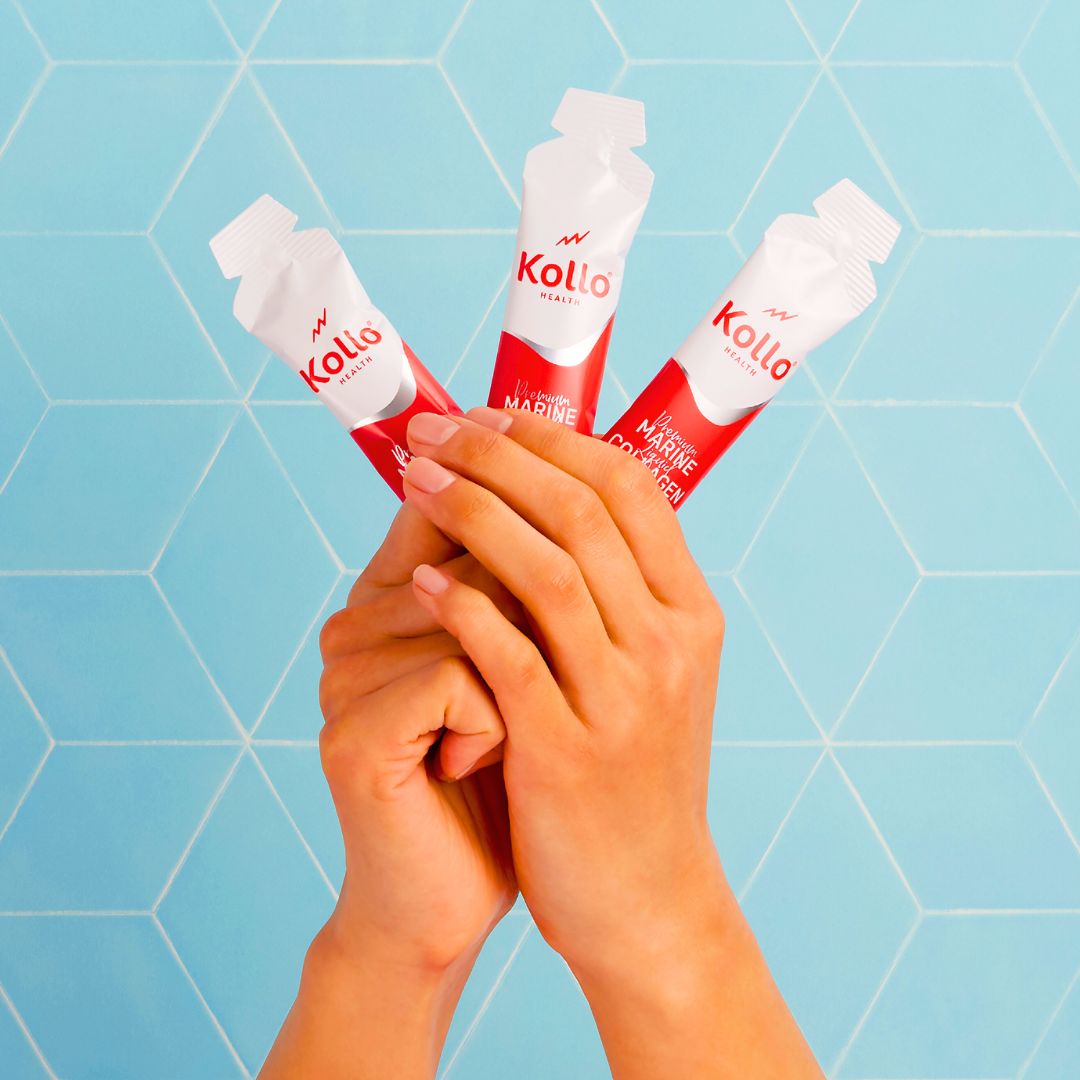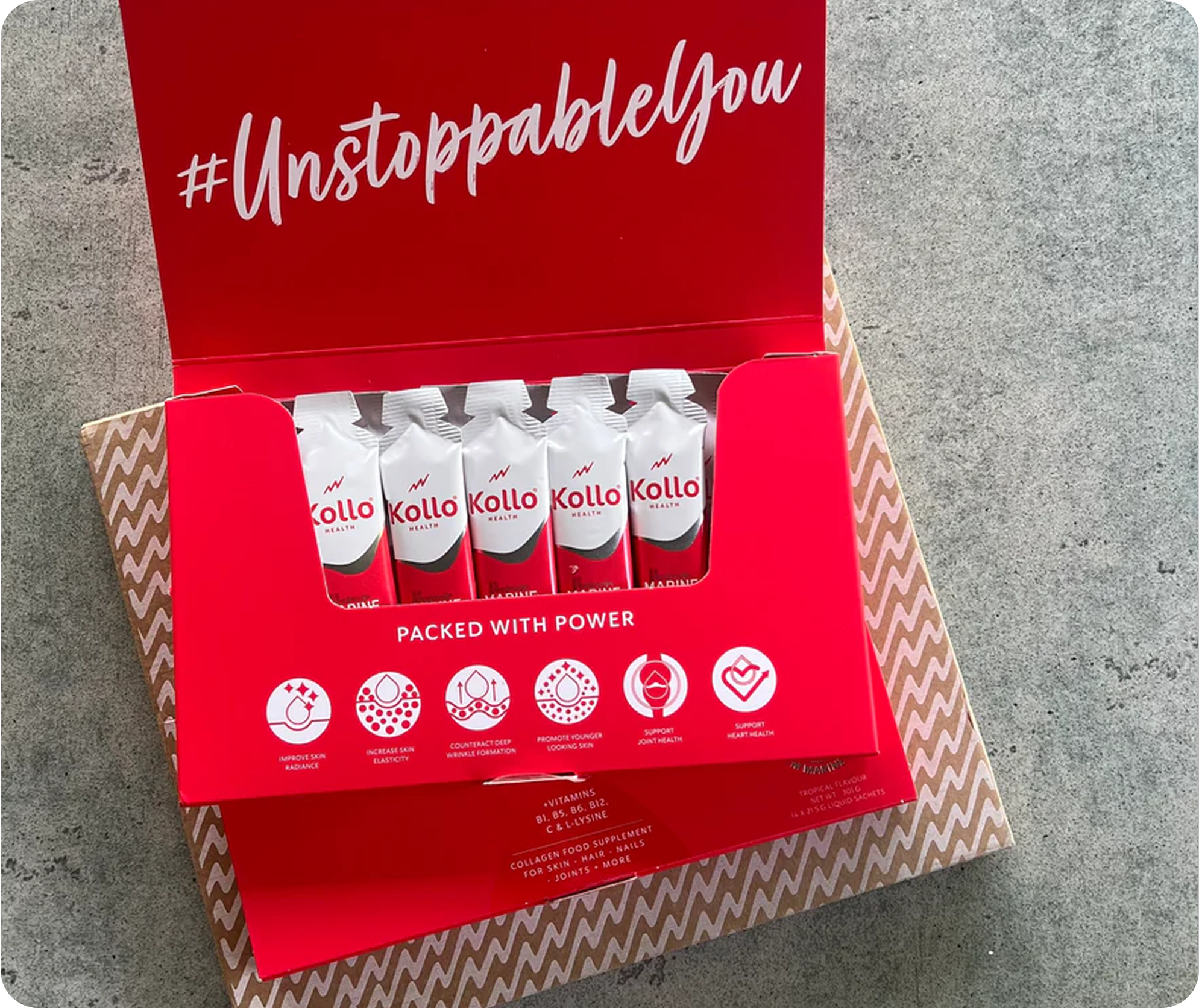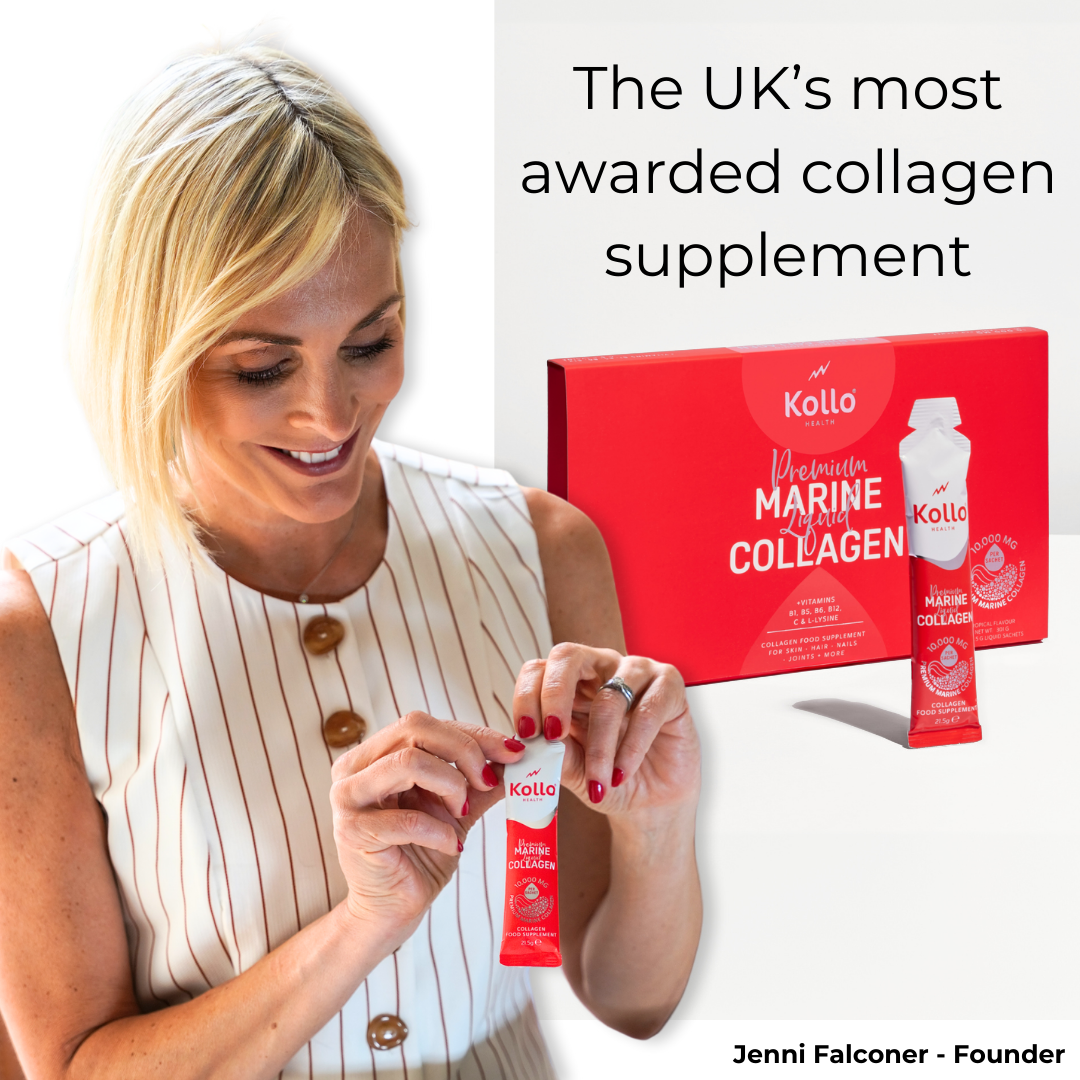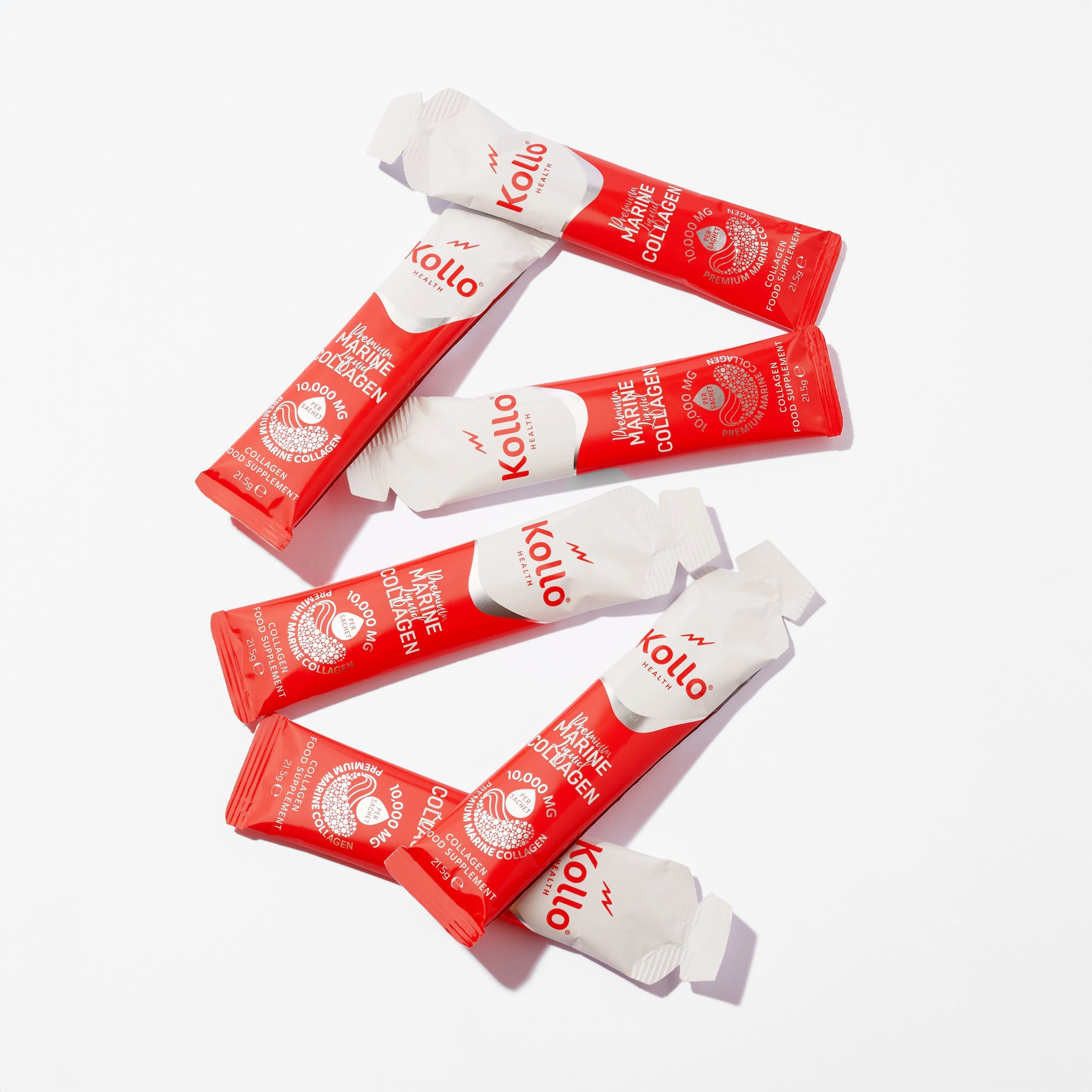Are all collagen peptides marine-sourced?
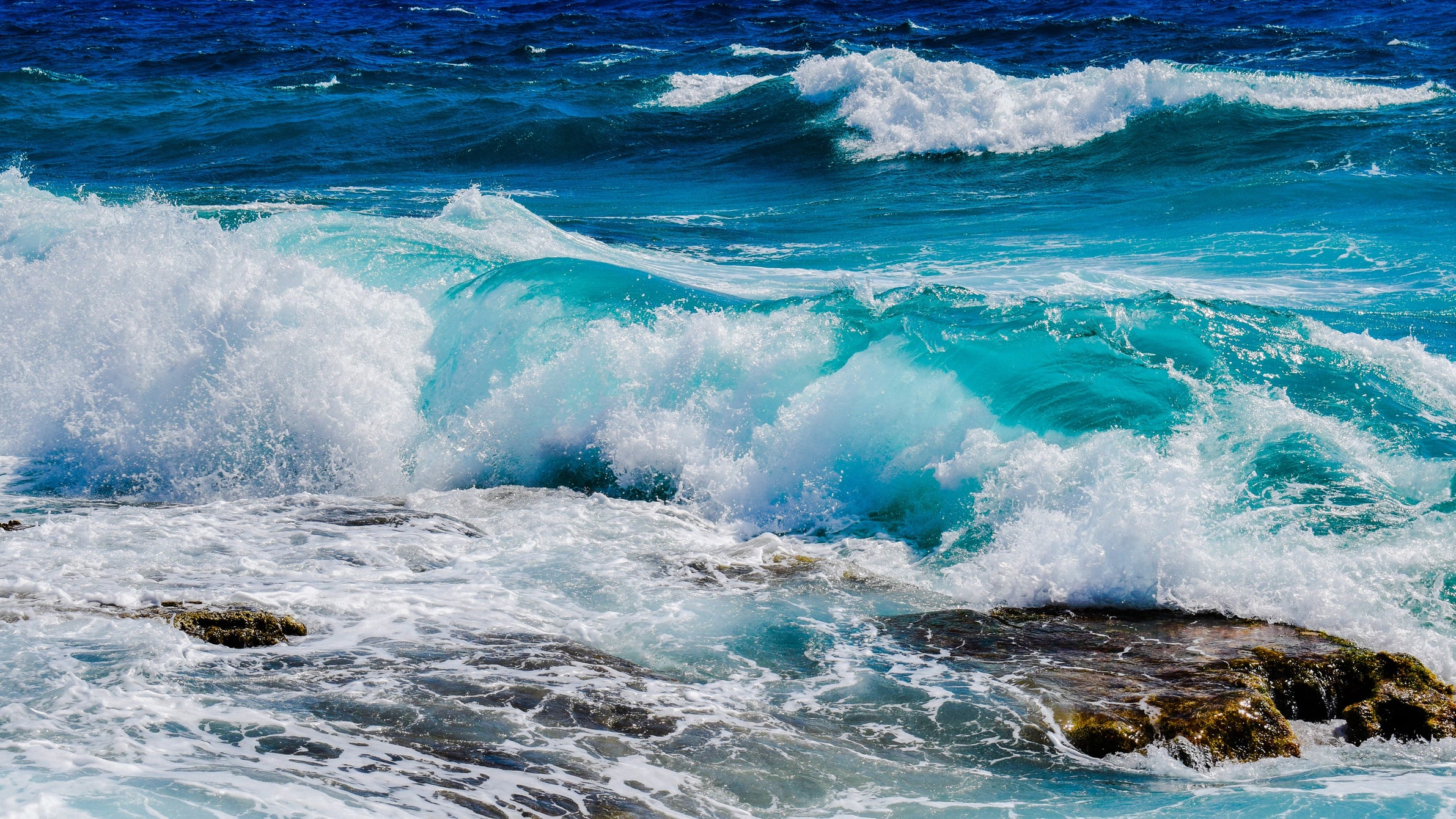
Are all collagen peptides marine-sourced?
Every sachet of Kollo contains a potent 10 grams of marine collagen peptides aimed at fuelling your body with the nutrients it needs to synthesise its own collagen. These collagen peptides are amino acid chains derived from native collagen molecules, so they contain everything your body needs to create that all-important protein itself. But are all collagen peptides marine-sourced or are there other ways to obtain it?
Read on to find out the answer to this question and what it means.
What are marine collagen peptides?
As you might guess, the use of the word ‘marine’ refers to the fact that the collagen is sourced from sea creatures. Specifically, it is fish that we source our collagen from: tilapia, pangasius hypophthalmus and catfish, to be precise. These are known to be sources of potent collagen, and the fish that our collagen comes from are farmed in an aquaculture fish farm, known for their responsibility and sustainability. What this means is that the farming processes used to rear these fish have minimal impact on the environment and do not use harmful chemicals like hormones and antibiotics that could contaminate the collagen.
Marine collagen is extracted from the skin and scales of the fish – parts that are not usually kept as food. It comes as a by-product of the fishing industry, so no fish are killed specifically for the purpose of obtaining their collagen. The collagen molecules used for Kollo are extracted using enzymatic processes that break down everything else so that only the collagen remains – some companies use chemicals to extract, but this can also result in contamination so we avoid it.
Once the native collagen molecules are extracted, they are broken down into smaller amino acid chains called collagen peptides. This is because the original collagen molecules are too large for our bodies to absorb – they need to be broken down into smaller molecules in order for our bodies to ingest them into our bloodstream. It is increasing the presence of these amino acids that triggers collagen synthesis in our bodies, so it is essential that the molecules can be easily absorbed. Marine collagen peptides are highly bioavailable, so you can be confident that they will get into your bloodstream and get to work quickly.
So are all collagen peptides marine-sourced?
In a word: no. There are other sources of collagen from which collagen peptides are derived. Common sources include:
• Cows (bovine collagen)
• Pigs (porcine collagen)
• Chickens
With these animals, the collagen is often extracted from their hides, bones, cartilage and other specific body parts. Again, it is almost exclusively a by-product of the farming industry, so very few animals are farmed and slaughtered purely for their collagen.
There are various reasons why brands source collagen from different animals:
Collagen type
There are many different types of collagen, all of which serve slightly different purposes in our bodies. For example, type I collagen is abundant in our skin, bones, tendons, ligaments and cartilage, while type II collagen is present more specifically in the tissues of our joints. Different animals are known to be better sources of different types of collagen, often because of the abundance of that collagen type in certain body parts. A cow has a far greater volume of bone mass than a fish, so collagen that can be extracted from bone may be best sourced from there.
The collagen that is by far the most abundant in our bodies is type I, and this is what we get when we use marine collagen. It is the most effective at yielding holistic benefits in our skin, joints, bones, nails and more, and this is one of the reasons Kollo uses collagen peptides, marine-sourced rather than a different type.
Cost
One factor brands consider to compete with one another is keeping costs down. In many cases, collagen extracted using chemical processes from cow hides is a relatively cheap source of collagen, since the raw material is abundant and the extraction methods are low-cost. The savings made in sourcing the collagen can be passed on to the consumer for a cheap collagen supplement that contains actual collagen peptides.
The problem with this is that we should never compromise on quality when it comes to food supplements. The cows that this cheap bovine collagen comes from may have been farmed in unethical ways, meaning the practice is not sustainable and the collagen could be contaminated with various unsavoury chemicals and even toxins. Moreover, the chemical extraction process could add yet more toxins into the mix. These could actually be harmful for your body, and the impurity of the collagen may make it far less effective at yielding the results you want.
Though a cut-price collagen product may seem appealing, the reality is that you get what you pay for. And when you pay for the cheapest products, you could actually be doing more harm than good. When developing Kollo, we made careful choices about the formulation to ensure the finished product included the high-quality, pure, sustainable collagen peptides marine animals can provide. Every decision was informed by the science and the principle of offering the best possible product for our customers.
Collagen peptides: marine considerations
Not all marine collagen is the same. There are brands that do not choose sustainable and ethical sources, opting instead for fish farmed in ways that are harmful to habitats and cruel to fish, not to mention that they use fish food that contains many of the same contaminants used in the farming of cows, pigs and chickens.
At Kollo, we use Naticol marine collagen, which is carefully extracted to preserve the purity and integrity of the collagen. It comes from aquaculture farmed fish and all processes are validated and safe, with no radiation used at any point and careful techniques applied for sterilisation, pasteurisation, filtration and demineralisation. The supply chain is secure and traceable, so you can put your faith in it (as we have). When looking at marine collagen supplements, you should have an eye towards brands that are very transparent about the source of their collagen. Brands that offer that information freely, and supply links to scientific studies alongside a wealth of information about the entire collagen industry, are brands that have your best interests at heart.
When they tick the right boxes, collagen peptides - marine-sourced with high purity - offer fantastic benefits for your body. If supplied in a good dosage in a supplement that is easy for your body to absorb, that abundance of type I collagen can help:
• Improve skin firmness and elasticity
• Reduce the appearance of wrinkles and fine lines
• Make joints more supple and comfortable
• Increase your bone density
• Make hair and nails stronger and less brittle
• Improve sleep quality and help energy levels
These are just some of the benefits of marine collagen. That is not to say there are no benefits to be experienced from bovine or porcine collagen. But we feel that high-quality marine collagen is the best – in fact, studies have shown it to be up to 1.5x more bioavailable than other collagen sources, meaning your body can absorb it faster and in greater quantities.
PLEASE NOTE: While another advantage of marine collagen is that it is suitable for pescatarians, you should be aware that people who suffer from seafood allergies should probably avoid marine collagen.
Final thoughts
Clearly, the answer to the question “Are all collagen peptides marine-sourced?” is a resounding “No”. But our extensive research into the industry led us to conclude that the all-round best collagen peptides are the marine variety, and this is what we put into every daily sachet of our Kollo collagen supplement.
If you want to learn more about our product, we invite you to explore our website. The product page lists details about the supplement, and we also have a page about scientific studies, an extensive blog that discusses everything you need to know, and a page of customer reviews for more evidence of what Kollo does for people. If you still have questions, please don’t hesitate to get in touch and ask us – our team would love to hear from you.
